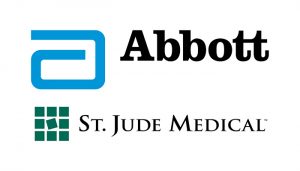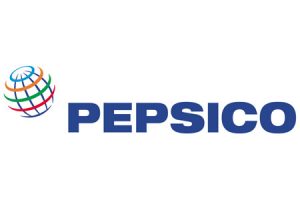 Top Class Action Lawsuits
Top Class Action Lawsuits
Not the Great Pyramid? Now here’s something with huge potential: Herbalife is facing a potential consumer fraud class action lawsuit alleging it operates as a pyramid scheme to bait consumers with the “promise of riches.” The Herbalife lawsuit, filed in Miami by eight former Herbalife distributors, also names 44 top Herbalife distributors as defendants.
The allegations center on Herbalife’s “Circle of Success” event cycle. These events allegedly consist of a series of expensive seminars held across the US. The seminars are allegedly a sales tool used by Herbalife representatives and inner circle top distributors, to create enthusiasm among the network’s hundreds of thousands of members and to convince them that success depends on attending as many of the “Circle of Success” events as possible.
According to the complaint, these events are systematic and scripted in nature, divided into separate tiers of semi-local Success Training Seminars, semi-annual Leadership Development Weekends, and “Extravaganza” and “January Spectacular” events run by Herbalife itself.
It’s quite the story. Allegedly, attendees are frequently required to travel in order to attend the events, for which ticket prices range between $30 and $200 per person. Further, once at the events, attendees are incentivized to make thousands of dollars in product purchases to achieve VIP status and other perks.
“With these acts, defendants have collectively persuaded hundreds of thousands of victims to invest substantial sums into attending events which are held out as the secret to becoming financially successful in a fraudulent scheme to which defendants know financial success is not possible,” the lawsuit states.
The lawsuit alleges violations of the federal Racketeer Influenced and Corrupt Organizations (RICO) Act for conducting a racketeering enterprise, for deceptive and unfair trade practices under the Florida Deceptive and Unfair Trade Practices Act and for unjust enrichment and negligent misrepresentation.
The lawsuit also claims separate violations of wire fraud, stating that the defendants’ acts of wire fraud are related because they share the same or similar purpose and target the same victims and have the same result: “hundreds of millions of dollars flowing from the plaintiff class into the coffers of Herbalife and its top few President’s Team distributors.”
The lawsuit is seeking certification of a class consisting of all people who purchased tickets and attended at least two “Circle of Success” events from 2009 to the present “in pursuit of Herbalife’s business opportunity.” The lawsuit states that this could involve hundreds of thousands plaintiffs.
Named plaintiffs Jeff and Patricia Rodgers, Michael and Jennifer Lavigne, Cody Pyle, Jennifer Ribalta, and Izaar and Felix Valdez, describe their losses as ranging from a few thousand dollars to over $100,000.
The defendants include Los Angeles-based Herbalife Ltd. and its wholly owned subsidiaries Herbalife International Inc. and Herbalife International of America Inc. Individual named defendants include top distributors, current and former members of the company’s board of directors, and members of its so-called President’s Team.
The case is Rodgers et al. v. Herbalife Ltd. et al., case number 1:17-cv-23429, in the U.S. District Court for the Southern District of Florida.
Top Settlements
Snap Judgment? Here’s a good news story –well – a happy ending at least. A $15 million settlement has been awarded to a manufacturing plant supervisor injured while at work and later demoted, then fired.
The plaintiff, 50-year old Cesar Astorga, alleged defamation, discrimination, and violations of California labor law against the defendant, Snap-On Logistics, a power tool manufacturer.
The trial took three weeks and the jury just a day and a half to reach its verdict. According to court documents, the plaintiff had worked for 15 years with the defendant as a supervisory employee.
The back story is that during the course of Astorga’s employment he suffered work-related injuries which required multiple surgeries and leaves of absence. The injuries were to both knees caused by falling off a scissor lift, and which were later aggravated when a 100-pound motor fell on top of him. He has had seven total knee surgeries (4 right-knee surgeries, 3 left-knee surgeries) to treat ongoing pain. From the beginning of 2002 through mid-2003, plaintiff was absent from work a total of nine and a half months. His next period of leaves of absence occurred from the beginning of April 2009 through February 2011, totaling 13 and a half months, according to court reports.
At one point, Snap-On provided Astorga with a golf cart so he could get around the 100,000 plus square foot facility. However, the defendant changed its policy in the 2009-2011 timeframe and told the plaintiff it no longer allowed employees to return to work with doctor-imposed work restrictions.
Astorga was demoted from his supervisor position during his most recent leave of absence, and fired on April 21, 2011. His medical bills, which were paid by Snap-On, exceeded $275,000.
Malpractice Win. Victory for the family who filed a medical malpractice lawsuit. They’ve been awarded a $3.2 million verdict by the jury hearing their case – the circumstances surrounding the death of a husband and father who died after receiving a vein implant designed to stop blood clots. The lawsuit claimed medical malpractice against three doctors at Mercy Suburban Hospital in Montgomery County, PA.
The Montgomery County jury reached their verdict after finding the doctors and Mercy Suburban Hospital negligent in their care of Ernest Lucchesi, who collapsed while refereeing a lacrosse game, was rushed to hospital and received the implant but later died.
The jury took seven hours to reach their verdict, after hearing evidence over the course of the nine day trial, which included, according to the Lucchesi family’s lawyer, two of the doctors admitting negligence: one before trial and one during trial. The third doctor took the stand to defend himself however, the jury didn’t like his excuses and assigned the majority of the negligence to him, the family attorney said.
According to the Lucchesi family’s pretrial memorandum, the doctors at Mercy implanted the vein filter in Lucchesi six months before he died. When Lucchesi was admitted to the emergency room, Bolden failed to note that the filter had migrated to his atrial valve, court papers said. He died three days after his discharge from Mercy.
The jury found Dr. John J. Flanagan 44 percent negligent, Dr. Hugh Lipshutz 31 percent negligent and Dr. David Bolden 25 percent negligent. The award was broken down into $1.5 million for wrongful death and just over $1.7 million under the Survival Act.
Ok – That’s a wrap for this week. See you at the bar!

 Top Class Action Lawsuits
Top Class Action Lawsuits  Top Class Action Lawsuits
Top Class Action Lawsuits  Top Class Action Lawsuits
Top Class Action Lawsuits  Top Class Action Lawsuits
Top Class Action Lawsuits